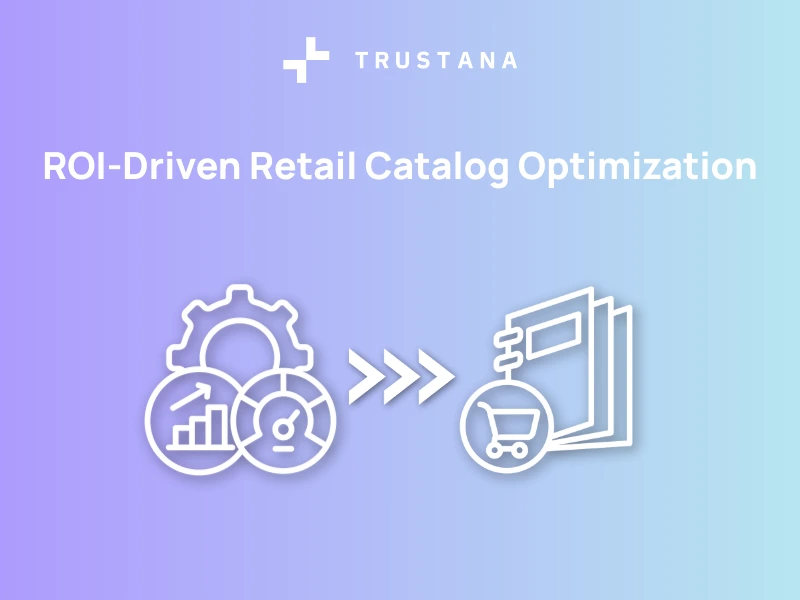Today’s retail industry requires managers and executives to navigate the AI revolution with confidence and capability. As a result, leveraging AI to enhance Product Information Management has become mission-critical. As artificial intelligence reshapes PIM systems and processes, brands must embrace AI-powered PIM systems to deliver accurate product data, streamline inventory management, and elevate the shopping experience both online and in store.
The Role of AI in Product Information Management
AI is redefining Product Information Management by automating data workflows, enriching product content, and analyzing customer behavior.
With AI-powered PIM software, retailers can centralize product data, generate compelling PDPs, and synchronize catalogs across e-commerce channels. This fusion of artificial intelligence and PIM transforms product content management into a scalable, error-free process that drives better business performance.
Integrating AI and PIM systems unlocks:
- Automated data management: AI can ingest and normalize millions of SKUs in real time, reducing manual errors.
- Content creation: Artificial intelligence AI helps generate descriptions, enrich attributes, and translate content across regions.
- Enhanced decision making: Machine learning analyzes consumer data and shopping habits to inform pricing and promotions.
By combining the strengths of AI with a modern PIM system, retailers gain the ability to scale across channels and maintain data consistency.
How AI Is Transforming PIM
AI PIM solutions go beyond traditional catalog management by enhancing enrichment, inventory control, and personalization. Machine learning detects missing attributes, corrects errors, and suggests SEO-friendly tags to enrich and improve the data available. Predictive AI enables smarter inventory forecasts and dynamic pricing while personalizing product recommendations. Together, these capabilities make product data more accurate, agile, and aligned with omnichannel customer expectations.
1. Automated Data Enrichment & Cleanup
Using AI technologies, PIM systems can detect missing attributes, suggest tags, and correct formatting issues. This automation accelerates onboarding of new products and ensures product information is always accurate.
2. Intelligent Inventory Management & Pricing
AI in PIM provides predictive inventory management, forecasting demand spikes and preventing stockouts. It also enables dynamic pricing strategies, adjusting prices based on competitor data, seasonality, and real-time sales velocity.
3. Personalized Shopping & Omnichannel Consistency
AI-driven PIM can tailor product listings and recommendations to individual shoppers, boosting customer experiences and customer loyalty. With a unified PIM, brands deliver consistent content across e-commerce sites, marketplaces, mobile apps, and physical stores.
Key Benefits for Retailers
Retailers adopting AI-powered PIM gain measurable improvements in speed, accuracy, and customer experience. Automated workflows reduce manual errors, AI analytics improve decision-making, and enriched product data accelerates time-to-market. From boosting conversion rates to lowering returns, PIM systems leveraging AI give retailers a competitive advantage in an increasingly competitive e-commerce landscape. Here are just a few of the key benefits for retailers:
- Efficiency and Accuracy
- AI implementation reduces manual handoffs and duplicates.
- Data and workflows stay synchronized across all systems.
- Faster Time to Market
- Automated content creation and approvals speed up product launches.
- Real-time updates ensure new SKUs go live instantly.
- Better Decision Making
- AI analytics surface trends in consumer data and marketing strategies.
- Retailers can react immediately to shifting shopping habits.
- Elevated Customer Experience
- Personalized catalogs and search results enhance the shopping experience.
- Unified product information builds trust and reduces returns.
Implementing an AI-Powered PIM: A Step-by-Step Guide
Successful adoption of AI in PIM begins with auditing product data, setting measurable KPIs, and choosing a scalable PIM platform with AI features like real-time syncing and automated tagging. Retailers should pilot AI tools with a proof of concept using a smaller catalog segment, refine workflows, and then expand organization-wide. With proper team training, AI becomes a seamless part of daily product data management. Here’s are 5 steps you can take to implement an AI-powered PIM:
- Assess Your Data Landscape
- Audit existing product data and identify gaps in data management.
- Define Objectives & KPIs
- Set goals for efficiency and accuracy: faster launches, fewer errors, higher conversion rates.
- Choose the Right PIM System
- Look for AI-driven features: automated tagging, real time syncing, and open APIs for inventory management.
- Pilot & Scale
- Start with a small catalog segment. Measure impact, refine workflows, then expand across your entire product range.
- Train Your Team
- Provide hands-on training so employees understand how AI can enhance their daily tasks.
Challenges and Considerations
While AI-driven PIM systems deliver significant advantages, implementing them is not without challenges. Businesses should consider current data quality issues, system integration and compatibility, and organizational alignment among internal stakeholders.
Clean, accurate product information remains critical for AI accuracy, while seamless connectivity with ERP, CMS, and e-commerce platforms ensures smooth workflows. Retailers also need strong change management strategies to maximize adoption across teams.
- Data Quality & Governance: AI is only as good as the data it ingests.
- Integration Complexity: Ensure seamless connectivity between PIM, ERP, CMS, and e-commerce platforms.
- Change Management: Align marketing efforts, IT, and merchandising teams on the benefits and processes of AI-powered PIM.
The Future of PIM Systems
The future of product information management is AI-first.
Intelligent PIM platforms will evolve into dynamic engines that support voice-enabled search, AR-powered product experiences, and predictive analytics for omnichannel performance. By embracing AI-driven catalog optimization now, retailers position themselves to deliver personalized, seamless customer journeys and unlock long-term digital commerce growth.
Retailers who embrace this transformation will lead in the age of digital commerce, delivering seamless, personalized customer experiences and unlocking untapped growth.
How does AI-powered PIM improve conversion rates?
Research shows enriched product information can lift e-commerce conversion by 20–50%, driven by better accuracy and search visibility.
Statista
What impact does PIM have on product return rates?
Accurate, detailed product content reduces mismatched expectations, cutting returns by 40–50% in global retail studies.
Baymard Institute
Can AI shorten time-to-market for new products?
Automated workflows in PIM systems accelerate product launches by ~30%, allowing retailers to capture demand faster.
Multishoring
How does PIM support operational efficiency?
Enterprises report a 50%+ reduction in manual data entry and catalog cleanup when AI automates enrichment and governance.
Multishoring
What ROI benchmarks are realistic for AI-PIM?
Global case studies show ROI ranging from 150% to 350%, balancing revenue growth, efficiency gains, and risk reduction.
Multishoring
How does centralized PIM help with compliance and risk?
By unifying product data, retailers can reduce regulatory risk and avoid costly fines tied to inaccurate or missing product details.
McKinsey

.webp)






